Bachem offers complimentary white papers on innovative products, services or processes in peptide NCEs and oligonucleotide NCEs research, as well as technical information on custom peptide synthesis.
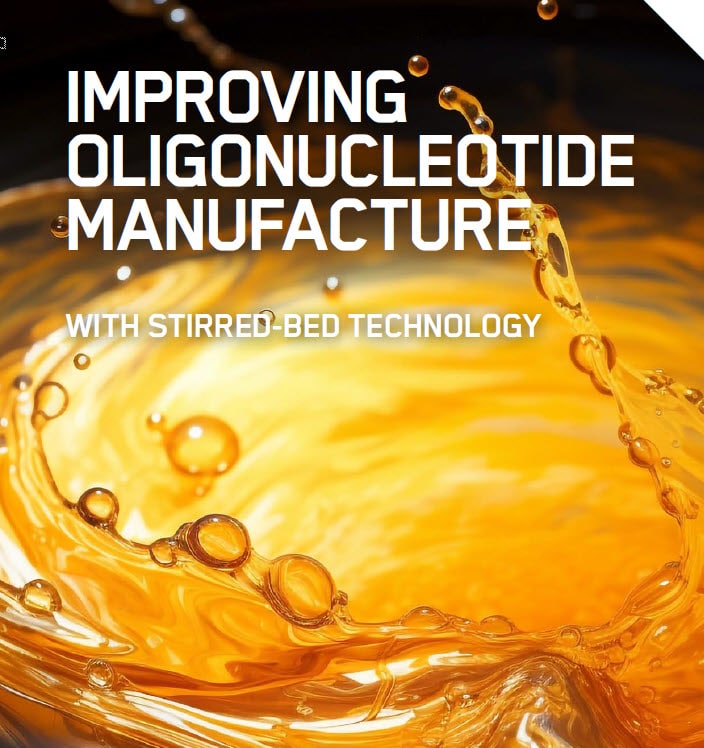
IMPROVING OLIGO MANUFACTURE WITH STIRRED-BED
Oligonucleotide-based active pharmaceutical ingredients (APIs) have emerged as a powerful approach to treating diseases. With hundreds of them in advanced clinical trials, a potential metric ton demand for certain products is expected that might not be easily fulfilled by conventional solid phase oligonucleotide synthesis (SPOS). It is essential to develop more efficient, more sustainable, and highly scalable manufacturing techniques.
This whitepaper explains how the innovative stirred-bed technology (SBT) for SPOS fulfills all these requirements and represents an economical engineering solution with a simple reactor design and adapted chemistry. Thus, ton-scale commercial oligonucleotide API manufacture with unmatched process mass intensity is within reach.
Download Case Study
By completing this form, the requested document will be sent directly to your email.
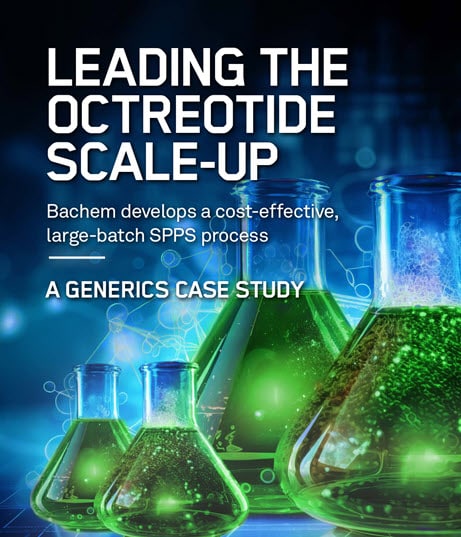
Bachem develops a cost-effective, large-batch process for octreotide acetate synthesis
Octreotide acetate is a therapeutic octapeptide analog of the naturally occurring hormone somatostatin. This longer-acting synthetic peptide agonist is used for the reduction of growth hormone and insulin-like growth factor 1 primarily used in adults with acromegaly.
New therapies such as oral formulations promise better disease control and quality of life for patients but require 30-60 times higher octreotide acetate concentrations, thus putting demand on complex API manufacturers such as Bachem to cost-effectively scale production.
Our client, a large pharmaceutical company who once manufactured octreotide in-house, decided in 2016 to partner with Bachem to take over large-scale API production. A win-win collaboration.
Download Case Study
By completing this form, the requested document will be sent directly to your email.
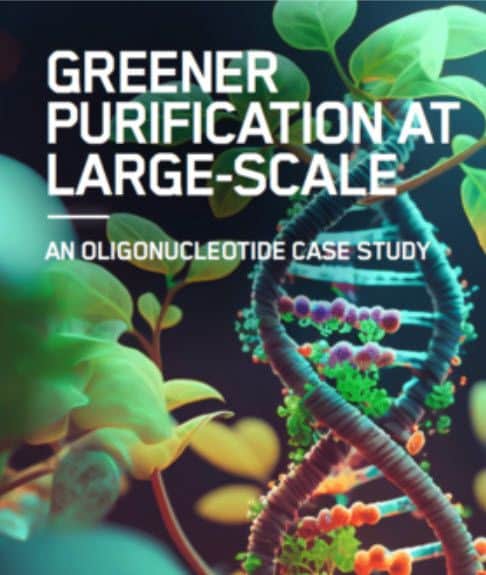
Greener purification at large-scale
An oligonucleotide case study
Resembling a new era of innovative drug development, the interest of the biopharma industry in the oligonucleotide markets has grown significantly in the past five years.
In 2021, the US Food and Drug Administration (FDA) approved the first-in-class siRNA to lower cholesterol – a drug with a multi-ton potential to treat millions of patients per year. Moving forward, the demand for oligonucleotide batch size is likely to increase as well as the need for large-scale manufacturing capacity to support this growth.
Download Case study
By completing this form, the requested document will be sent directly to your email.
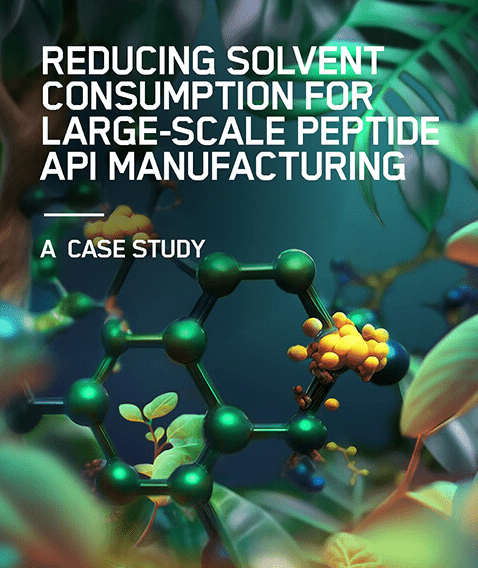
Reducing Solvent Consumption for Large-scale Peptide API Manufacturing
A peptide case study
Resembling a new era of innovative drug development, the interest of the biopharma industry in the peptide and oligonucleotide markets has risen significantly in the past five years. The advent of oral and inhaled peptide products has driven demand for these active pharmaceutical ingredients (APIs).
Between 2018 and 2020, the average peptide manufacturing batch size increased by 2.3 times in response to a wider variety of peptide drug modalities entering the market. Furthermore, with the launch of new glucagon-like peptide (GLP) analogs targeting metabolic diseases like diabetes and obesity, there is a growing need for large-scale manufacturing of these APIs to treat a large patient population.
Download Case study
By completing this form, the requested document will be sent directly to your email.
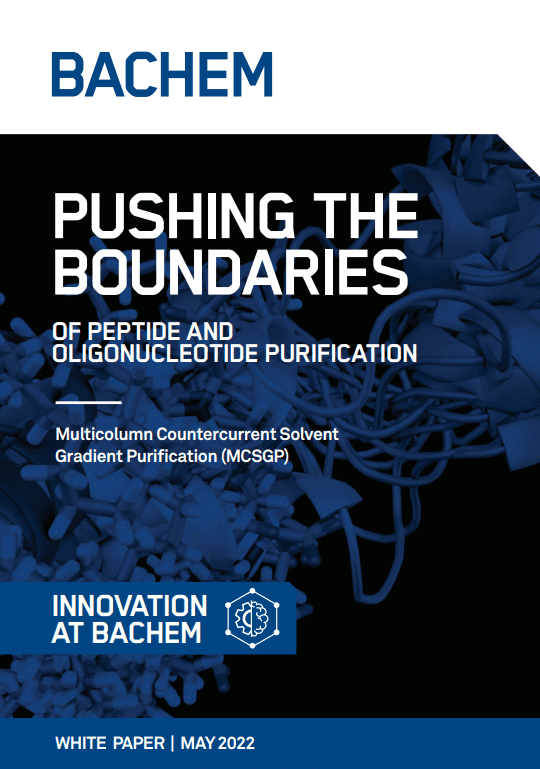
Continuous Chromatography – Pushing the boundaries of peptide and oligonucleotide production
During the manufacturing of a peptide API, well-established purification is crucial for achieving high purity and yield, and at the same time is a major determinant for the cost efficiency and process productivity.
Multicolumn Countercurrent Solvent Gradient Purification (MCSGP) has shown to achieve substantially higher capacity and yield than single-column batch processes. This innovative purification process leads to time savings, economic advantages and a lower environmental footprint.
Download White Paper
By completing this form, the requested document will be sent directly to your email.
A New Turn in Peptide Purification
Innovation is a central pillar of Bachem’s success. Our dedicated teams explore and develop new technologies to bring innovative solutions to our partner’s needs. Here, we will introduce a new innovation that represents a new turn in peptide purification.
Read the full white paper on a new turn in peptide purification.
Microspheres and Nanoparticles for Peptide Delivery
Proteins and peptides fulfill an irreplaceable role as medicines due to their high affinity, specificity, low toxicity, and ability to alter protein-protein interactions. They are widely recognized as therapeutic agents in the treatment of a variety of conditions, including diabetes, osteoporosis, nonHodgkin’s lymphoma, and leukemia. Clinical development is on-going as the pharmaceutical industry works to harness the potential of peptides for many other conditions. While incredible progress has been made in designing peptide- and protein-based drugs for multiple therapeutic uses, challenges remain. This white paper explores challenges of peptide- and protein-based new chemical entities [NCEs]including potential chemical and physical instabilities, enzymatic degradation, and their rapid elimination from circulation.
Read the full white paper on microspheres nanoparticle.



